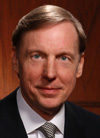
Member Login |
What are your hotel guests saying about your approach to Hotel Surcharges and Fees?
publication date: Dec 27, 2012
|
author/source: Dr. Bjorn Hanson,
Question from HospitalityEducators.comWhat are your hotel guests saying about your approach to Hotel Surcharges and Fees?17 August 2012
By Dr. Bjorn Hanson, Divisional Dean Preston Robert Tisch Center for Hospitality, Tourism, and Sports Management NYU School of Continuing and P Dr. Bjorn Hansonrofessional Studies (NYU-SCPS)
 August 15, 2012 | Following the record $1.85 billion amount collected in 2011, total fees and surcharges collected by U.S. hotels are increasing again in 2012, forecast to total a new record of $1.95 billion. The increase reflects a combination of 3.5 percent more occupied hotel rooms than in 2011, plus higher fees and surcharge amounts at many hotels, especially resorts. Fewer hotels will have newly introduced fees and surcharges. There were no reported new fees and surcharge categories introduced in 2011, so the increase is primarily attributed to increases in the amounts charged, the introduction of fees and surcharges for some hotels, and an increase in the number of occupied rooms of almost five percent.
U.S. Lodging Industry Fees and Surcharges to Continue Upward Trend in 2013 to New Record – $1.95 BillionFees and surcharges emerged as an industry practice in about 1997 with resort fees (one of the first resort fees was titled, "amenities tariff"). Energy surcharges were introduced for a short period in 2000. Fees and surcharges have increased every year except for periods following 2001 and 2008 when lodging demand declined. Although the lodging industry initiated fees and surcharges before the airline industry, the airline industry collects significantly more than the lodging industry. Examples of fees and surcharges include: resort or amenity fees, early departure fees, early reservation cancellation fees, internet fees, telephone call surcharges, business center fees (i.e. charges for receiving faxes and sending/receiving overnight packages), room service delivery surcharges, mini-bar restocking fees, charges for in-room safes, and automatic gratuities and surcharges. For groups, there have been increased charges for bartenders and other staff at events; special charges for set-up and breakdown of meeting rooms; fees for master folio billing; and baggage holding fees for guests leaving luggage with bell staff after checking out of a hotel but before departure. Most fees and surcharges are highly profitable; most have incremental profitability of 80 to 90 percent or more. The estimated amounts and trend of fees and surcharges collected is summarized below: Year | Amount (in billions)
These amounts are estimated based on selected interviews with industry executives and corporate travel executives, analysis of industry financial data, press releases, and information available on hotel and brand websites. EDITORS: To interview Dr. Bjorn Hanson about this research or for more information, please contact Cheryl Feliciano at Cheryl.Feliciano@nyu.edu or 212-992-9103 or Suzanne Dawson at sdawson@lakpr.com or 212-329-1420. About the Author Bjorn Hanson, Ph.D., is divisional dean of the NYU-SCPS Preston Robert Tisch Center for Hospitality, Tourism, and Sports Management. He is a hospitality and travel researcher, widely respected for his industry forecasts and for having created econometric models that transformed business analysis in the field. Prior to joining NYU-SCPS, he held the position of global industry leader, hospitality and leisure, at PricewaterhouseCoopers LLP.
About the NYU School of Continuing and Professional Studies
Established in 1934, NYU-SCPS (scps.nyu.edu) is one of NYU's several degree-granting schools and colleges, each with a unique academic profile. The reputation of NYU-SCPS arises from its place as the NYU home for study and applied research related to key knowledge-based industries where the New York region leads globally. This is manifest in the School's diverse graduate, undergraduate, and continuing education programs in fields such as Real Estate and Construction Management; Hospitality, Tourism, and Sports Management; Global Affairs; Philanthropy and Fundraising; Graphic Communications Media, Publishing, and Digital Arts; Human Capital Management, Marketing, and Public Relations; with complementary strengths in the Liberal and Allied Arts; Translation and Interpreting; Management and Information Technology; and Finance and Taxation. More than 100 distinguished full-time faculty members collaborate with an exceptional cadre of practitioner/adjunct faculty and lecturers to create vibrant professional and academic networks that attract nearly 5,000 degree-seeking students from around the globe. In addition, the School fulfills the recurrent continuing higher education needs of local and professional communities, as evidenced by 55,000 annual enrollments in individual courses, specialized certificate programs, conferences, workshops, seminars, and public events. The School's community is enriched by more than 25,000 degree-holding alumni worldwide, many of whom serve as mentors, guest speakers, and advisory board members. ORGANIZATION
New York University (NYU) |
Search the SiteEducator Profiles |